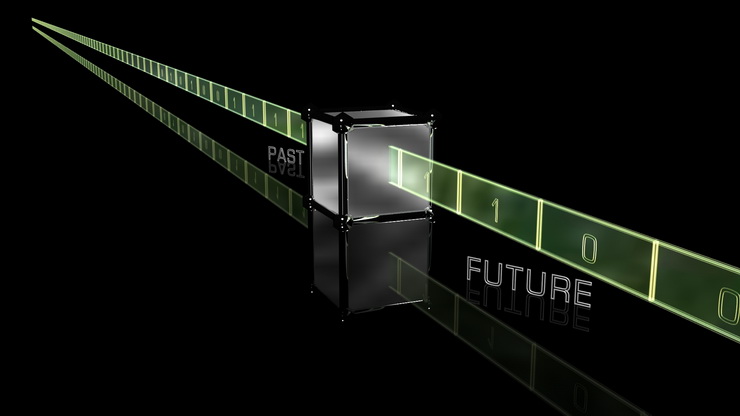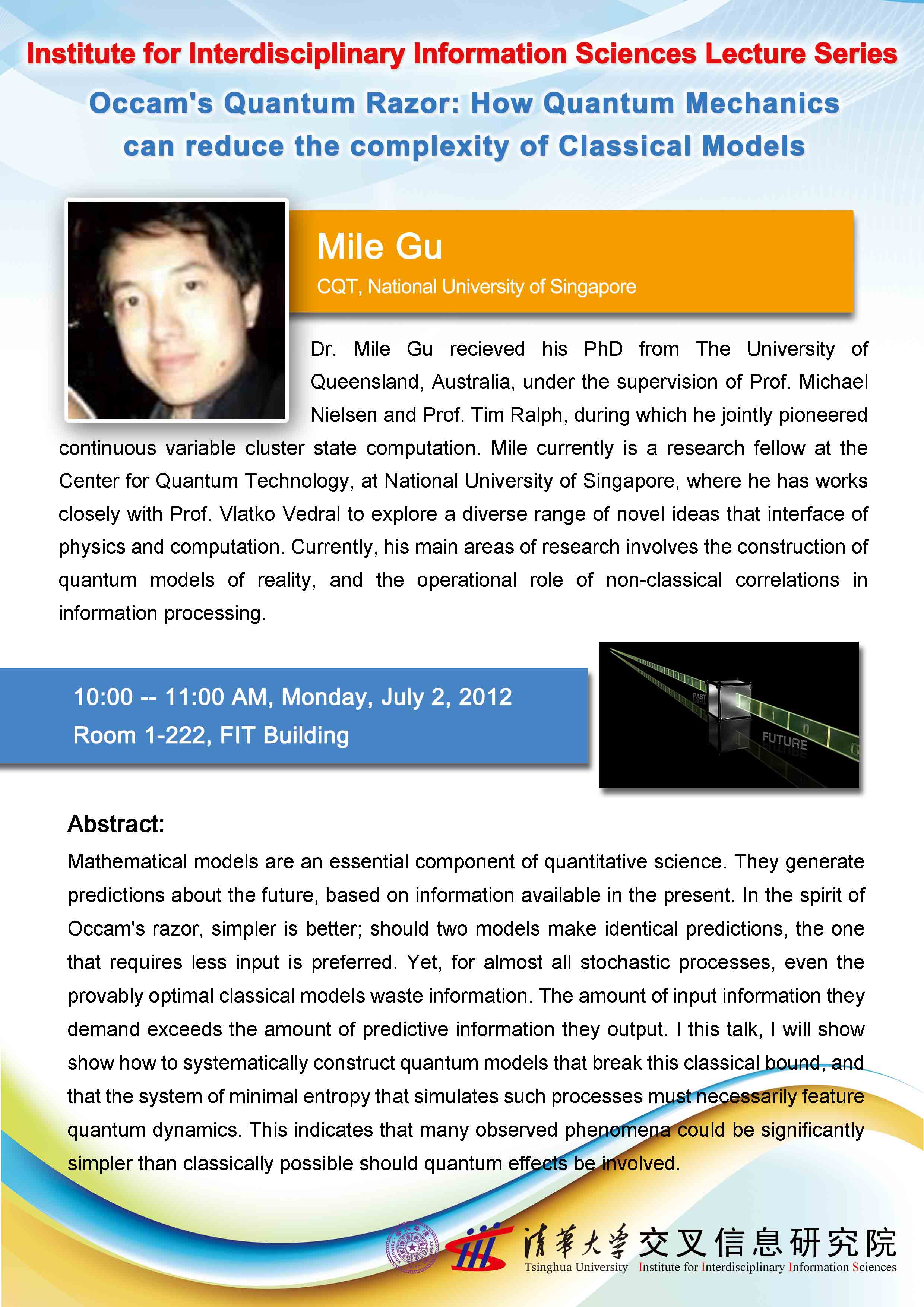Abstract:

Mathematical models are an essential component of quantitative science. They generate predictions about the future, based on information available in the present. In the spirit of Occam's razor, simpler is better; should two models make identical predictions, the one that requires less input is preferred. Yet, for almost all stochastic processes, even the provably optimal classical models waste information. The amount of input information they demand exceeds the amount of predictive information they output. In this talk, I will show how to systematically construct quantum models that break this classical bound, and that the system of minimal entropy that simulates such processes must necessarily feature quantum dynamics. This indicates that many observed phenomena could be significantly simpler than classically possible should quantum effects be involved.
Short Bio:
Dr. Mile Gu recieved his PhD from The University of Queensland, Australia, under the supervision of Prof. Michael Nielsen and Prof. Tim Ralph, during which he jointly pioneered continuous variable cluster state computation. Mile currently is a research fellow at the Center for Quantum Technology, at National University of Singapore, where he has works closely with Prof. Vlatko Vedral to explore a diverse range of novel ideas that interface of physics and computation. Currently, his main areas of research involves the construction of quantum models of reality, and the operational role of non-classical correlations in information processing.

